| | In this edition: South Africa bids for tariff time, deaths from USAID cuts, Guinea’s bauxite exports͏ ͏ ͏ ͏ ͏ ͏ |
| |   Pretoria Pretoria |   Freetown Freetown |   Libreville Libreville |
 | Africa |  |
| |
|
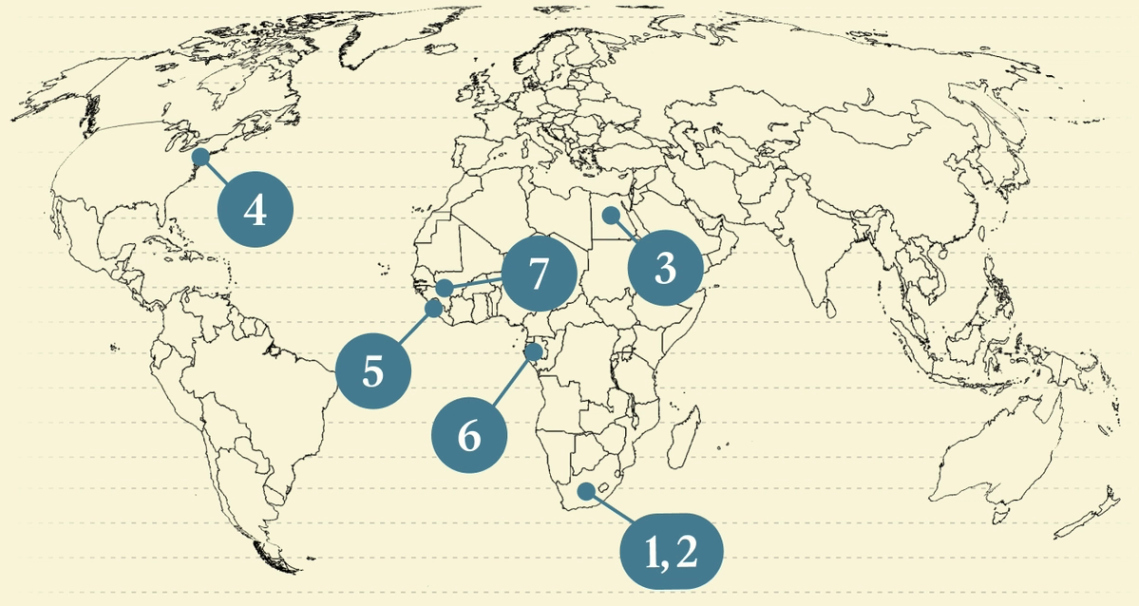 - S. Africa bids for tariff time
- Starlink’s expansion plans
- Afreximbank downgraded
- Fallout of USAID cuts…
- …The countries fighting back
- Africa’s high air taxes
- Guinea’s bauxite exports
 A graphic novel about the legendary Afrobeat pioneer Fela Kuti. |
|
S. Africa seeks more time for tariff talks |
 Rogan Ward/File Photo/Reuters Rogan Ward/File Photo/ReutersSouth Africa has requested more time to negotiate a trade deal with the US before Washington’s tariff reprieve expires next week. The Trump administration imposed a 31% levy on imports from South Africa in April as part of “reciprocal” tariffs placed on countries around the world, duties that were suspended until July 9. The South African trade ministry said its officials met last week with a top US trade representative, who told them that Washington — South Africa’s second-largest trading partner after China — was developing a new template to engage with African countries. “African countries, including South Africa, have advocated for the extension of the 90-day deadline to enable countries to prepare their proposed deals in accordance with the new template,” Pretoria said in a statement, adding that it “reiterated this position” during the meeting. In an interview, Standard Bank CEO Sim Tshabalala told Semafor that South Africa “does have cards to play” in negotiations with the US, referring to rare earths and metals like platinum, of which South Africa is a leading producer. |
|
Starlink looks to expand in Africa |
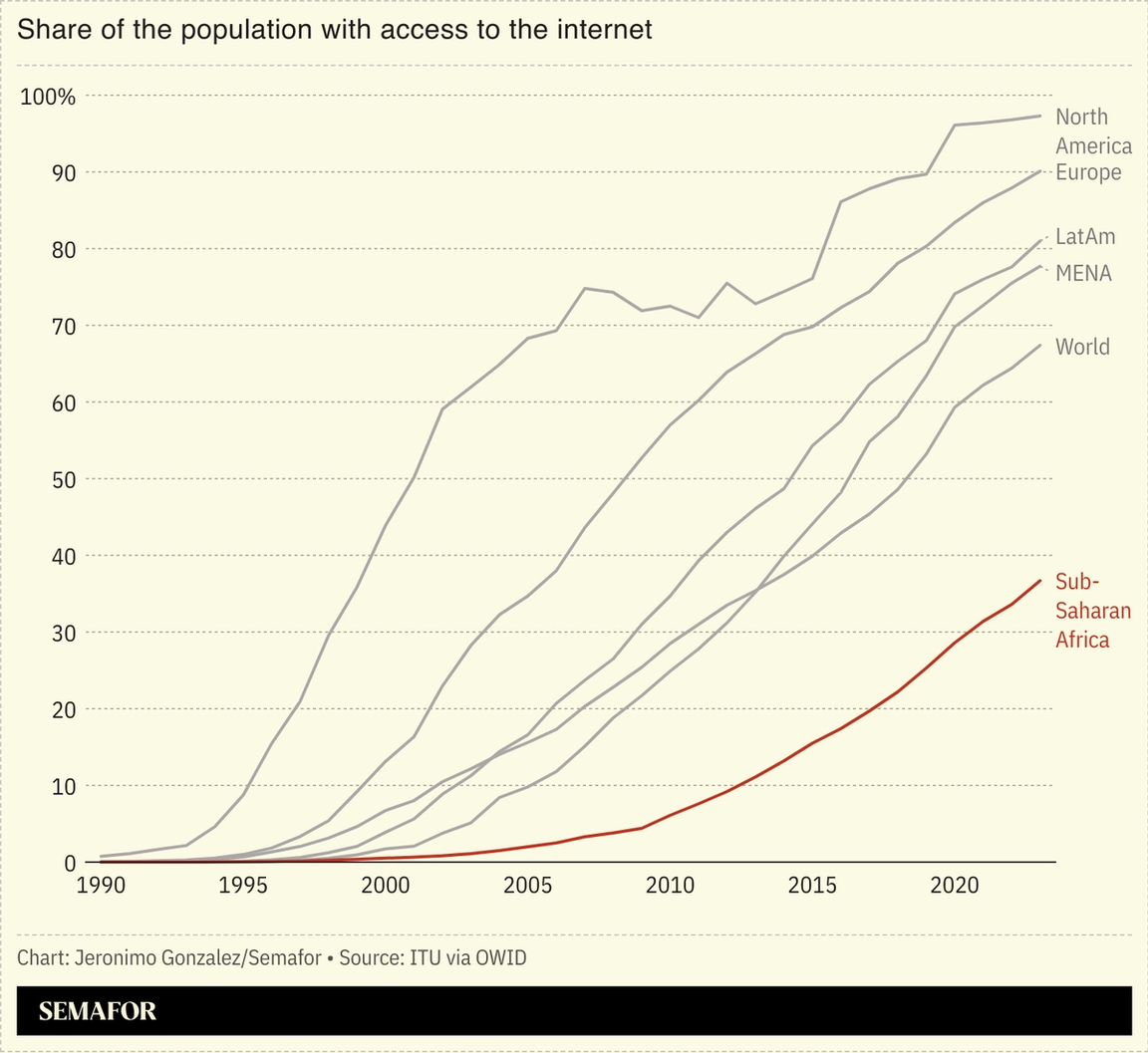 Elon Musk’s Starlink will invest $113 million to provide satellite internet services in South Africa as it looks to increase its presence on the continent. Under the proposed deal, 16 countries could gain access to Starlink’s internet services, South Africa’s Business Day reported. But questions remain: Musk has rejected giving up equity in order to meet Pretoria’s Black empowerment rules, which the billionaire has called “openly racist,” and the government is yet to make a decision on whether to award Starlink an operating license. The expansion of satellite internet nevertheless means many in Africa may skip traditional broadband internet services entirely in favor of satellite connections: Just 36% of sub-Saharan Africa’s population has internet access, roughly half the global average. |
|
Moody’s downgrades Afreximbank |
 Afreximbank AfreximbankRatings agency Moody’s downgraded African Export-Import Bank (Afreximbank) closer to junk status, saying that the bank’s “unsecured lending to sovereigns under stress has introduced significant risks.” It follows a similar move by Fitch Ratings last month, a downgrade that sparked questions about the Cairo-based institution’s broader strategy. Afreximbank “often seems determined not to be bogged down by orthodox multilateral development bank practices,” Bright Simons, honorary vice president at the Accra-based think tank IMANI, wrote for Semafor in June. Last week Afreximbank shareholders appointed George Elombi, a Cameroonian national who has worked at the institution for more than two decades, as the bank’s next president. |
|
Millions at risk from US aid cuts |
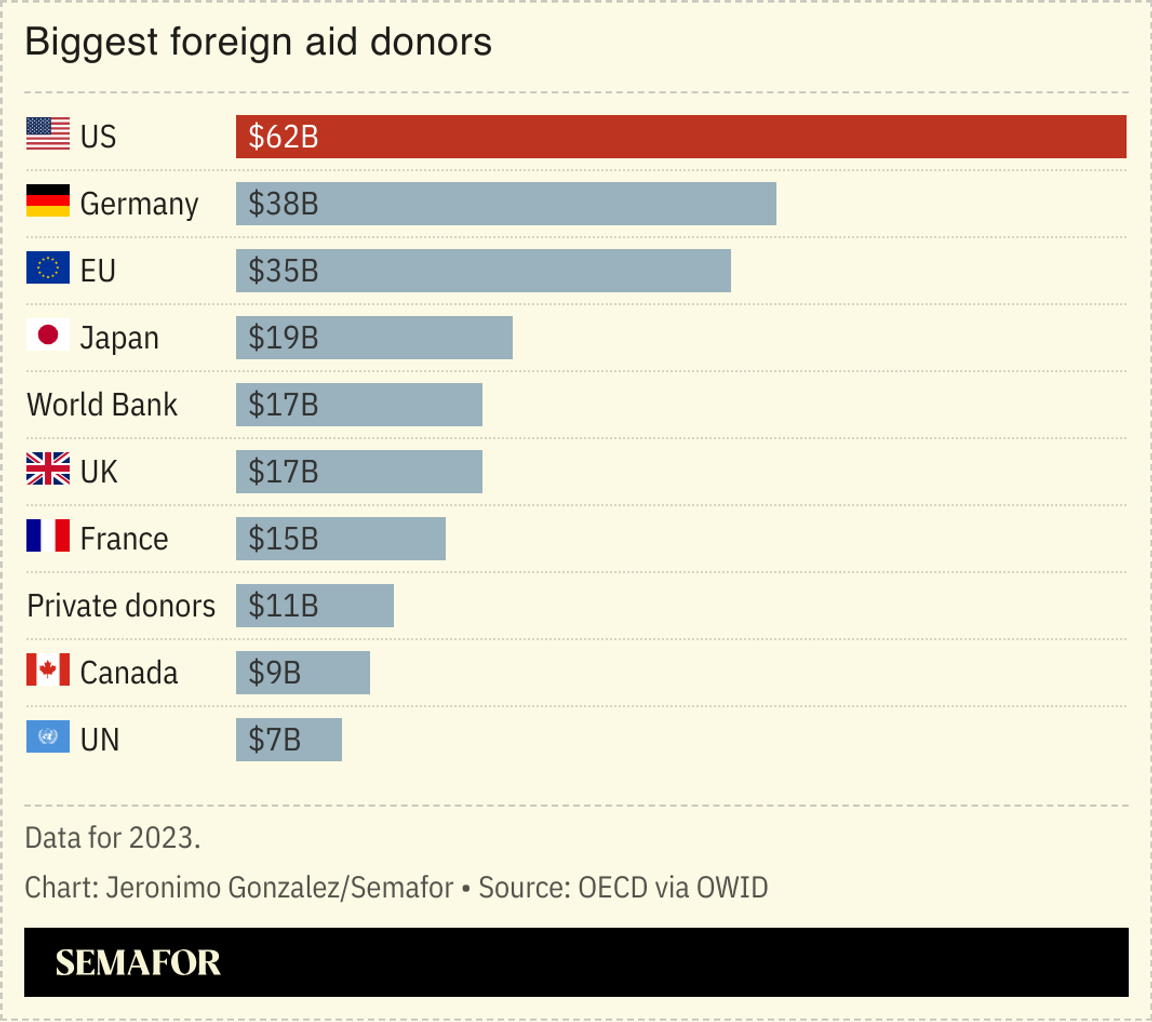 Washington’s foreign aid cuts could lead to an additional 14 million deaths by 2030 as countries scramble to make up for the sudden, massive shortfall. According to a report in The Lancet, up to a third of those premature deaths would be of children, with sub-Saharan Africa likely to be hardest hit. US humanitarian assistance has plunged by around 80% since billionaire Elon Musk — who as a White House aide oversaw drastic budget cuts — boasted of feeding aid agency USAID “into the wood chipper.” The abrupt cuts have already led to hundreds of thousands of deaths, according to one estimate, with one expert telling the BBC that further reductions would wipe out “two decades of progress in health among vulnerable populations.” The aid cuts have also come in for criticism in Washington: The top Democrat on the US Senate’s foreign relations committee argued that foreign assistance was not charity, and was instead “a strategic tool to promote American interests, strengthen alliances and counter the growing reach of countries like China and Russia.” Yet in a Substack note published on Tuesday, US Secretary of State Marco Rubio said the “era of government-sanctioned inefficiency has officially come to an end.” He said foreign aid must now “be in furtherance of an America First foreign policy.” |
|
One Good Text… with Nicholas Kristof |
Nicholas Kristof is a New York Times columnist who has written extensively about the dismantling of USAID under the Trump administration. 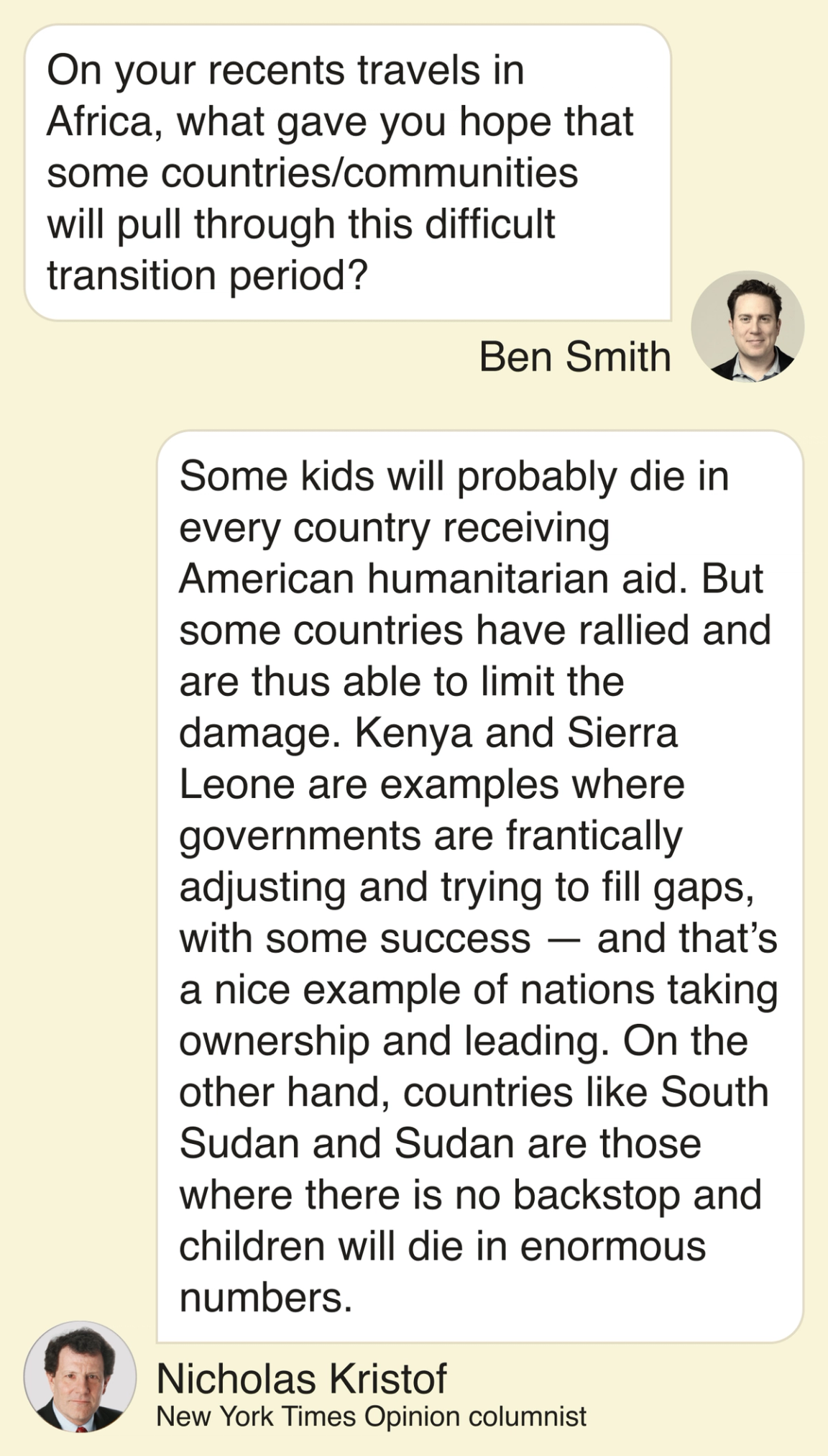 |
|
Africa’s high air transport taxes |
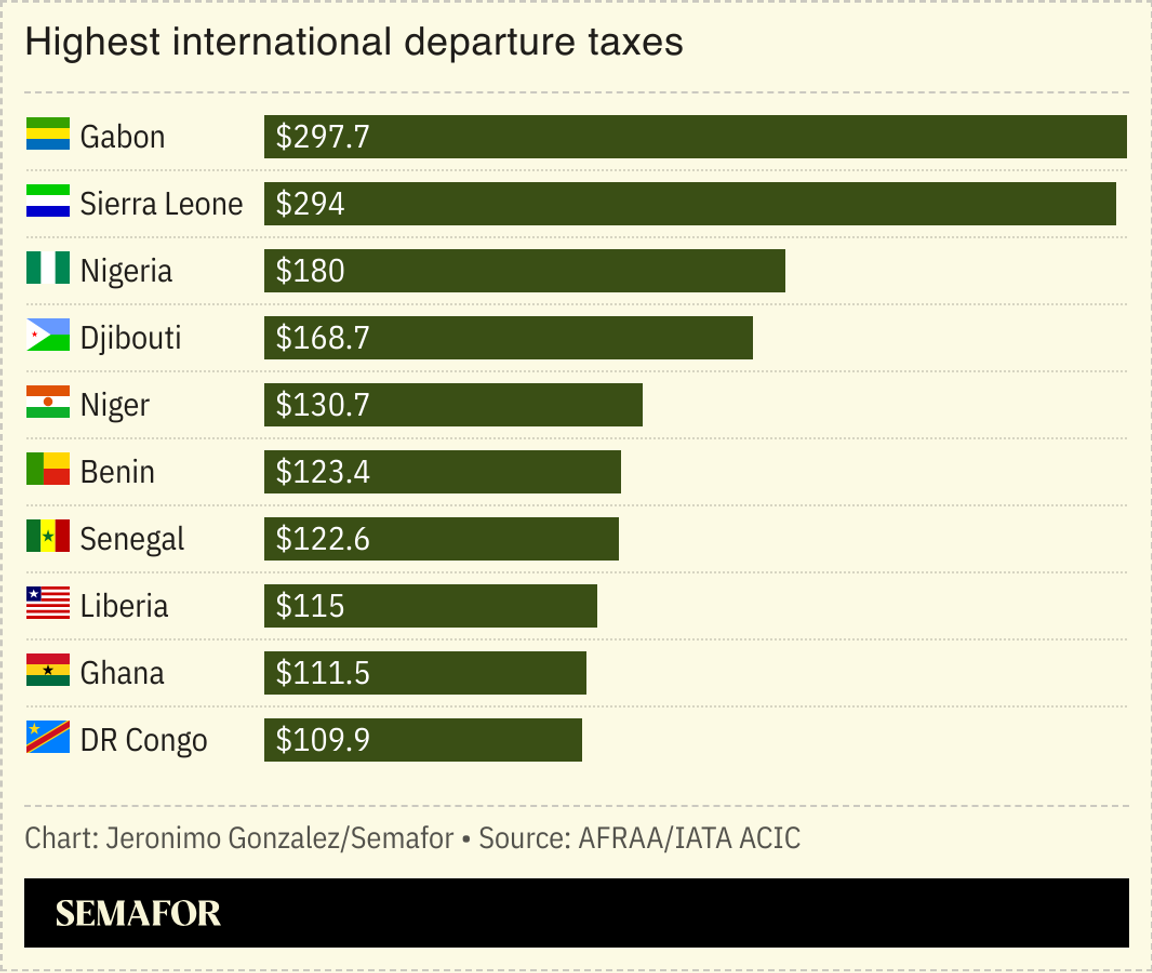 Air travel passengers pay more in taxes to fly from Africa than counterparts departing from Europe or the Middle East, a report by the African Airlines Association showed. The average amount of taxes, charges, and fees for international departures from Africa is $68, twice the average for both Europe and the Middle East. Africa’s air transport industry is not profitable, the airline group said, in part because of the high levels of taxes and charges that civil aviation authorities levy on airlines. “Air transport is perceived as a luxury service across the continent,” the group said, a factor that leads governments, airports, and service providers to “overcharge airlines even though many need help to survive.” It called for tax structures to be harmonized between countries to reduce excessive charges, and for authorities to seek out “alternative funding methods for aviation infrastructure.” |
|
Guinea ramps up bauxite exports |
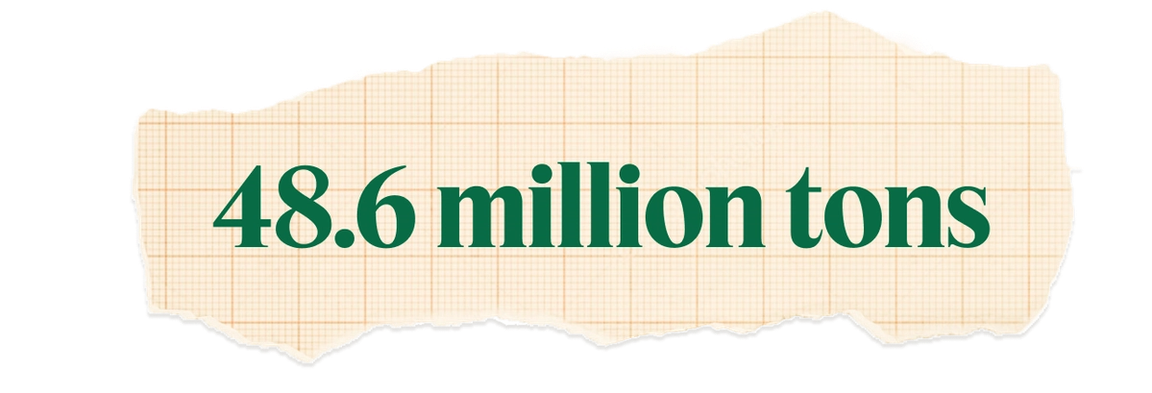 The quantity of bauxite Guinea exported in the first quarter of this year. It represents a 39% increase on the same period last year, according to Reuters. Bauxite is used to make aluminium, a crucial material in the manufacturing of electric vehicles. Most of Guinea’s exports go to China: The West African country was the source of 70% of Beijing’s bauxite imports last year. China’s booming EV sector, underscored by BYD overtaking Tesla in sales this year, represents an opportunity for Guinea, which is among the world’s highest producers of the mineral, alongside Australia and China. |
|
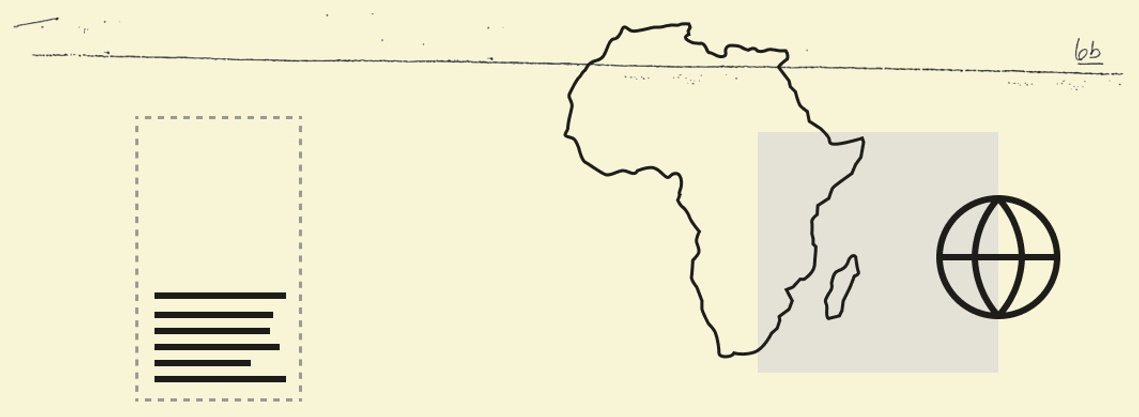 Business & Macro |
|
|